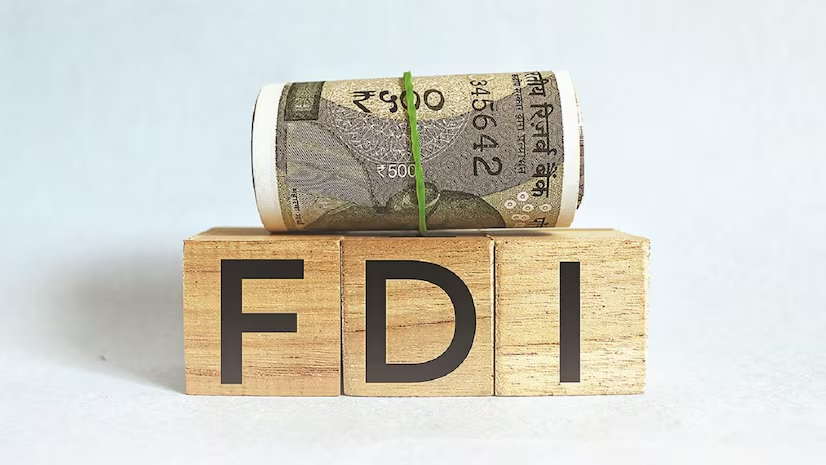For decades, Foreign Direct Investment (FDI) has acted as a crucial bridge between global capital and developing economies, powering infrastructure projects, job creation, industrial growth, and technology transfer. But now, that bridge is crumbling.
The latest World Investment Report 2025 released by the United Nations Conference on Trade and Development (UNCTAD) reveals a startling picture: global FDI fell by 11% in 2024, marking the second consecutive year of decline. This isn’t just a cyclical dip— it’s a structural unraveling, one that could derail development efforts in dozens of low-and middle-income countries already grappling with high debt, sluggish growth, and post-pandemic economic scars.
The numbers are alarming. In a world that claims to be committed to inclusive growth and sustainable development, it’s disheartening to witness investment flows retreating from where they are most needed. The rhetoric of global solidarity increasingly rings hollow when the financial lifelines meant to uplift vulnerable economies are quietly being severed. Instead of channeling capital into sectors and regions that could drive real, lasting development, the system continues to favor convenience and short-term returns. This isn’t just a data point in a report— it’s a stark indictment of our global priorities.
This retreat is no accident. It is the result of a combination of geopolitical fragmentation, economic uncertainty, and policy short-termism. And while the headline decline might seem moderate at a glance, what lies beneath is a development emergency in slow motion.
A Mirage of Growth: The 4% Illusion
At first glance, global investment seemed to grow. UNCTAD’s report even notes a 4% increase in global FDI to $1.5 trillion in 2024. But this is where the numbers deceive.
The apparent rise was driven by financial conduit flows— investments channeled through intermediary countries like Luxembourg, the Netherlands, and Ireland, often for tax or regulatory purposes. These flows don’t translate into new factories, power plants, or digital infrastructure on the ground.
In real terms, productive capital investment is shrinking. Europe saw a devastating 58% drop in FDI, and developed countries overall recorded a 22% decline. This global contraction, paired with redirected capital and increasing concentration in just a few hotspots, has left many developing nations stranded— cut off from the capital lifeline they desperately need to fund health systems, transport, energy, and technology.
Africa: Between Hope and Hard Reality
Africa stands out as a paradox in this crisis. On the surface, the continent witnessed a 75% surge in FDI, driven by a single mega-project in Egypt. Even after excluding that outlier, inflows still rose by 12%, boosted by regulatory reforms and improved investment facilitation in select countries.
But dig deeper, and a familiar pattern emerges: investment concentration. A few nations— Egypt, Nigeria, South Africa— absorb the lion’s share of inflows, while smaller and fragile economies remain on the margins.
Even more troubling is where the money is not going. Sectors like renewable energy, water and sanitation, and transport, which are vital for Africa’s sustainable development, all suffered dramatic investment declines. According to UNCTAD, international project finance in these areas fell by over 30%, worsening the infrastructure gap and dimming the continent’s prospects of achieving the 2030 Sustainable Development Goals (SDGs).
The Digital Divide Worsens
The one bright spot in the report? The digital economy. FDI in digital sectors rose by 14% in 2024, led by semiconductors, ICT manufacturing, and digital services. But even this silver lining comes with a storm cloud.
Nearly 80% of all new digital projects went to just 10 countries, mostly in Asia and North America. The rest of the world, particularly the Global South, remains digitally disconnected and locked out of the tech-driven growth wave.
This isn’t just a matter of capital. It’s about infrastructure, regulation, and human capital. Investors simply won’t go where there are no roads, no reliable electricity, and no digital talent. That’s the harsh reality in vast regions of Africa and South Asia, where structural deficiencies continue to shut the door on meaningful participation in the global digital economy. Without urgent investment in these foundational elements, the promise of a digitally inclusive future will remain out of reach for millions.
Without targeted investments in digital infrastructure, skills training, and innovation ecosystems, developing countries will miss out on leapfrog opportunities— and become even more reliant on traditional, volatile commodity exports.
Systemic Failure or Strategic Choice?
Why is global capital bypassing the Global South where the need is greatest? UNCTAD’s report pulls no punches. The current system, it says, sends money where it’s easiest to invest— not where it’s most needed. That means capital often chases short-term returns in developed markets or tax-friendly jurisdictions rather than long-term impact in emerging economies.
This misalignment is especially damaging for development-critical sectors that require patient capital and public-private collaboration— sectors like water supply, green energy, education, and transportation.
At the same time, rising geopolitical tensions are reshaping investment decisions. As the U.S. and China compete for technological supremacy, multinational corporations are increasingly prioritizing supply chain security and national interest-driven policies over global expansion.
FDI has become more politicized than ever. Multinational corporations are no longer driven solely by economic fundamentals; instead, their decisions are increasingly shaped by sanctions risks, geopolitical alliances, and political stability. This shift places countries that lack such predictability— yet desperately need investment— at a severe disadvantage. As a result, capital is flowing not toward development needs, but toward geopolitical convenience, deepening global inequalities and leaving vulnerable economies further behind.
Middle-Income Squeeze and Vulnerable States
The crisis is also not uniform. Middle-income countries, which often sit in a grey zone between rich and poor, are experiencing what experts call the “FDI squeeze”. They’re too developed to attract concessional finance and too unstable or uncompetitive to lure private capital.
Meanwhile, least developed countries (LDCs) and small island developing states (SIDS) saw modest increases in inflows— 9% and 14% respectively— but these were heavily concentrated. Just a handful of countries accounted for most of the gains.
In landlocked developing countries (LLDCs), FDI actually fell by 10%, underscoring the persistent challenge of geographic isolation and weak logistics connectivity.
Across all these regions, UNCTAD warns of a growing investment fragility, where flows are not only small but also volatile, short-term, and highly sensitive to external shocks.
Time for Smarter Capital
The way forward isn’t just about increasing the volume of Foreign Direct Investment— it’s about reshaping its purpose. UNCTAD argues for smarter capital— investment that is long-term, inclusive, and strategically aligned with the Sustainable Development Goals (SDGs). This shift requires more than market forces; it demands a rethinking of how global capital is mobilized and where it flows.
To that end, UNCTAD is championing a bold new multilateral agenda, set to be unveiled at the 4th International Conference on Financing for Development (FfD4). The aim is to create an investment ecosystem that serves development, not just profits, by strengthening international cooperation and embedding sustainability into capital decisions.
The proposed framework focuses on seven key pillars: ethical data and AI governance, tailored policy toolkits for digital FDI in developing economies, clear global rules for digital trade, blended finance for digital infrastructure, partnerships between universities and industries, programs to support digital entrepreneurship, and strong sustainability standards. Together, these reforms seek to bridge the digital divide and channel capital to where it can create the greatest impact.
Turning Volatility into Opportunity
Despite the bleak outlook, UNCTAD insists this crisis can be a turning point. If governments, international financial institutions, and corporations come together to reshape the global investment architecture, the same forces that are destabilizing today’s capital markets could power a more inclusive future.
But this requires political will and coordinated action. The emerging economies are at a crossroads. The choices made now will determine whether global inequality deepens or whether the world seizes this moment to build a fairer, more inclusive investment system. It’s a question of will— whether global leaders are prepared to reimagine financial flows not just for the privileged few, but for the broader benefit of humanity. The current system has shown its flaws; what’s needed now is bold, collective action to ensure that investment serves people, not just profits.
At a time when slogans about “leaving no one behind” are common at global summits, the FDI crash is a sobering reminder that rhetoric is not enough. The world must back its words with capital— real, productive, and transformative capital— especially for the people and places most in need.
The View from the Ground: What’s at Stake?
Back in Ghana, construction of a long-planned industrial park near Tamale has stalled for lack of international financing; in Bangladesh, a solar power project designed to electrify rural villages has been mothballed; in Bolivia, upgrades to an outdated water treatment plant remain on the drawing board— all waiting for foreign capital that may never arrive.
These aren’t abstract statistics. They represent missed opportunities, lost jobs, and unrealized dreams. They are the human cost of an investment system that still prioritizes profit over purpose.
Unless global capital begins to flow with intention— and unless developing nations are empowered to shape the terms of investment— the goals of 2030 will remain just that: goals, not realities.
The global FDI crash is more than a headline— it’s a call to reimagine how the world allocates its resources. In a time of immense wealth and technology, the fact that billions remain without access to energy, clean water, and digital tools, is not just a failure of economics— it is a failure of imagination and solidarity.
If the world can mobilize trillions for defense and speculation, surely it can mobilize investment for development. The time to act is now; before more nations are left behind; before the investment gap becomes an unbridgeable chasm; before the crash becomes a collapse.









